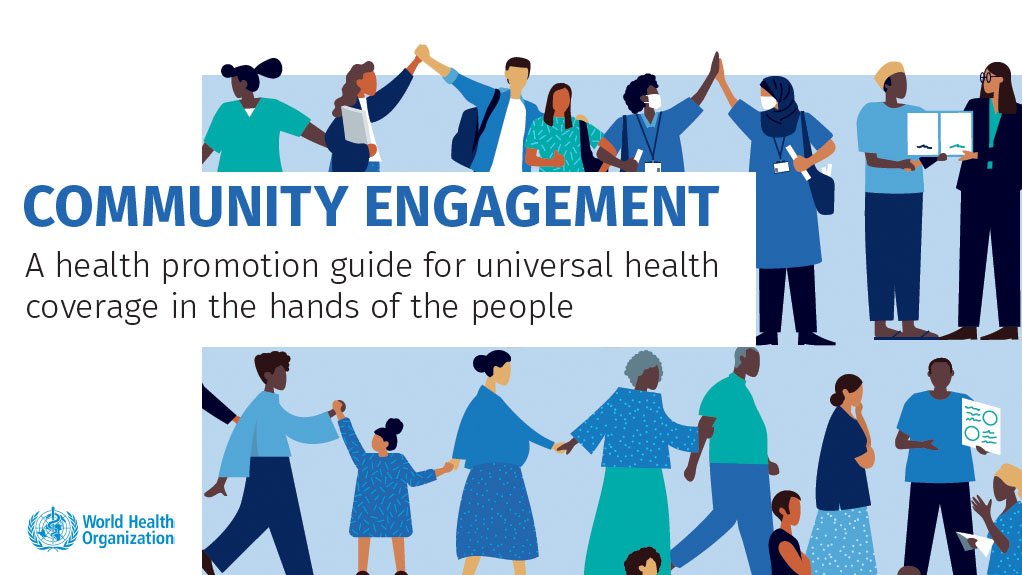What is Community Engagement in Health?

Community engagement in health refers to the process of engaging with community members, organizations, and stakeholders to promote and improve health outcomes. It involves building partnerships, collaborations, and relationships with community members, healthcare providers, and other stakeholders to identify and address health needs and priorities. Community engagement in health can take many forms, including community-based initiatives, health education and promotion, advocacy, and policy development.
Why is Community Engagement in Health Important?
Community engagement in health is important for several reasons. Firstly, it allows for the identification of community-specific health needs and priorities, which can inform the development of targeted and effective health interventions. Secondly, community engagement in health promotes community ownership and empowerment, which can lead to increased community participation and motivation to adopt healthy behaviors. Thirdly, community engagement in health can help to build trust and credibility between community members and healthcare providers, which is essential for promoting health equity and reducing health disparities.
Benefits of Community Engagement in Health
The benefits of community engagement in health are numerous and well-documented. Some of the key benefits include:
- Improved health outcomes: Community engagement in health can lead to improved health outcomes, including reduced rates of chronic diseases, improved mental health, and increased access to healthcare services.
- Increased community participation: Community engagement in health can promote community participation and motivation to adopt healthy behaviors, which can lead to positive changes in lifestyle and behavior.
- Enhanced community capacity: Community engagement in health can help to build community capacity and resilience, which can enable communities to better respond to and recover from health crises and emergencies.
- Better use of resources: Community engagement in health can help to ensure that resources are used more effectively and efficiently, which can lead to better value for money and improved health outcomes.
- Reduced health disparities: Community engagement in health can help to reduce health disparities and promote health equity, which is essential for creating fair and just societies.
Strategies for Community Engagement in Health
There are several strategies that can be used to promote community engagement in health, including:
- Community-based initiatives: Community-based initiatives, such as community health worker programs, can provide a platform for community members to take an active role in promoting and improving health outcomes.
- Health education and promotion: Health education and promotion can help to educate community members about healthy behaviors and lifestyles, and promote the adoption of healthy practices.
- Advocacy: Advocacy can help to promote policy and systemic changes that support community health and well-being, and address the social determinants of health.
- Partnerships and collaborations: Partnerships and collaborations between community members, healthcare providers, and other stakeholders can help to build trust and credibility, and promote the development of effective and sustainable health initiatives.
- Technology-based initiatives: Technology-based initiatives, such as mobile health programs, can provide a platform for community members to access health information, services, and support.
Challenges and Barriers to Community Engagement in Health
Despite the importance and benefits of community engagement in health, there are several challenges and barriers that can hinder its success. Some of the key challenges and barriers include:
- Limited resources: Limited resources, including funding, personnel, and infrastructure, can hinder the development and implementation of community engagement initiatives.
- Lack of community participation: Lack of community participation and engagement can limit the effectiveness and sustainability of community engagement initiatives.
- Cultural and linguistic barriers: Cultural and linguistic barriers can limit the accessibility and effectiveness of community engagement initiatives, particularly in diverse and multicultural communities.
- Trust and credibility: Trust and credibility between community members and healthcare providers can be limited, particularly in communities that have experienced historical trauma and marginalization.
- Policy and systemic barriers: Policy and systemic barriers, including lack of support for community engagement initiatives, can limit the effectiveness and sustainability of community engagement initiatives.
FAQs
- What is community engagement in health?: Community engagement in health refers to the process of engaging with community members, organizations, and stakeholders to promote and improve health outcomes.
- Why is community engagement in health important?: Community engagement in health is important for identifying and addressing community-specific health needs and priorities, promoting community ownership and empowerment, and building trust and credibility between community members and healthcare providers.
- What are the benefits of community engagement in health?: The benefits of community engagement in health include improved health outcomes, increased community participation, enhanced community capacity, better use of resources, and reduced health disparities.
- What are the strategies for community engagement in health?: Strategies for community engagement in health include community-based initiatives, health education and promotion, advocacy, partnerships and collaborations, and technology-based initiatives.
- What are the challenges and barriers to community engagement in health?: Challenges and barriers to community engagement in health include limited resources, lack of community participation, cultural and linguistic barriers, trust and credibility, and policy and systemic barriers.
Conclusion
Community engagement in health is a critical aspect of promoting and improving health outcomes. It involves the active participation of community members, organizations, and stakeholders in the planning, implementation, and evaluation of health initiatives. Community engagement in health can lead to improved health outcomes, increased community participation, enhanced community capacity, better use of resources, and reduced health disparities. However, there are several challenges and barriers that can hinder the success of community engagement initiatives, including limited resources, lack of community participation, cultural and linguistic barriers, trust and credibility, and policy and systemic barriers. By understanding the importance and benefits of community engagement in health, and by using effective strategies and approaches, we can build stronger, healthier communities and promote health equity and social justice. Ultimately, community engagement in health is essential for creating a healthier, more just, and more equitable society for all.
Closure
Thus, we hope this article has provided valuable insights into Community engagement in health. We appreciate your attention to our article. See you in our next article!